Traditional retail ways have experienced significant changes as a result of the recent twenty-year
development of e-commerce. The logistics industry has to change as a result of the significant
change from physical retail to online platforms. The need for speed, accuracy, and sustainability
is placing more and more demand on traditional delivery methods. It depends on human labour
and companies of automobiles.
Contemporary customers demand fast shipping, flexible return policies and tracking information.
It’s becoming more and more obvious that creative solutions must be developed as a result of the
strain. These demands are placed on today’s logistical systems. Autonomous drones and artificial
intelligence (AI) are viewed as critical technologies that could ease some of these problems with
the ability to increase supply chain efficiency and streamline operations.
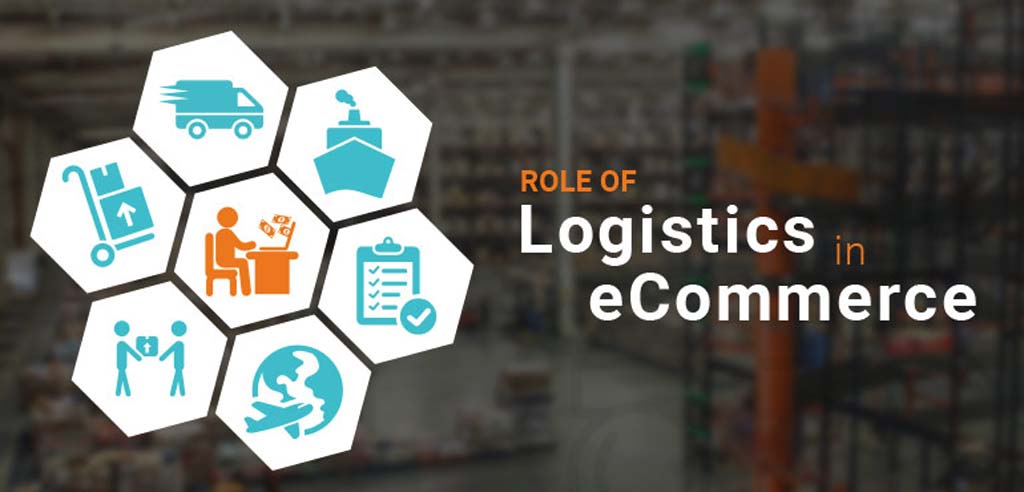
Role of Autonomous Drones in E-Commerce Deliveries:
The final delivery of a distribution center to the customer is transformed by autonomous drones.
This part of the logistics chain which can account for up to 50% of the entire cost of shipping, is
often the most challenging and costly. Drones provide a successful replacement to traditional
delivery methods are challenging to reach locations, avoiding traffic jams and avoiding crowded
highways.
How it works?
Autonomous drones can explore challenging areas and avoid obstacles. It can be done with the
help of sophisticated sensors, GPS, and machine learning algorithms. These drones have the
option of having delivery routes already programmed or flying directions that are dynamically
changed based on real-time data. Drones can deliver packages accurately and safely by
integrating AI, even in unexpected weather patterns.
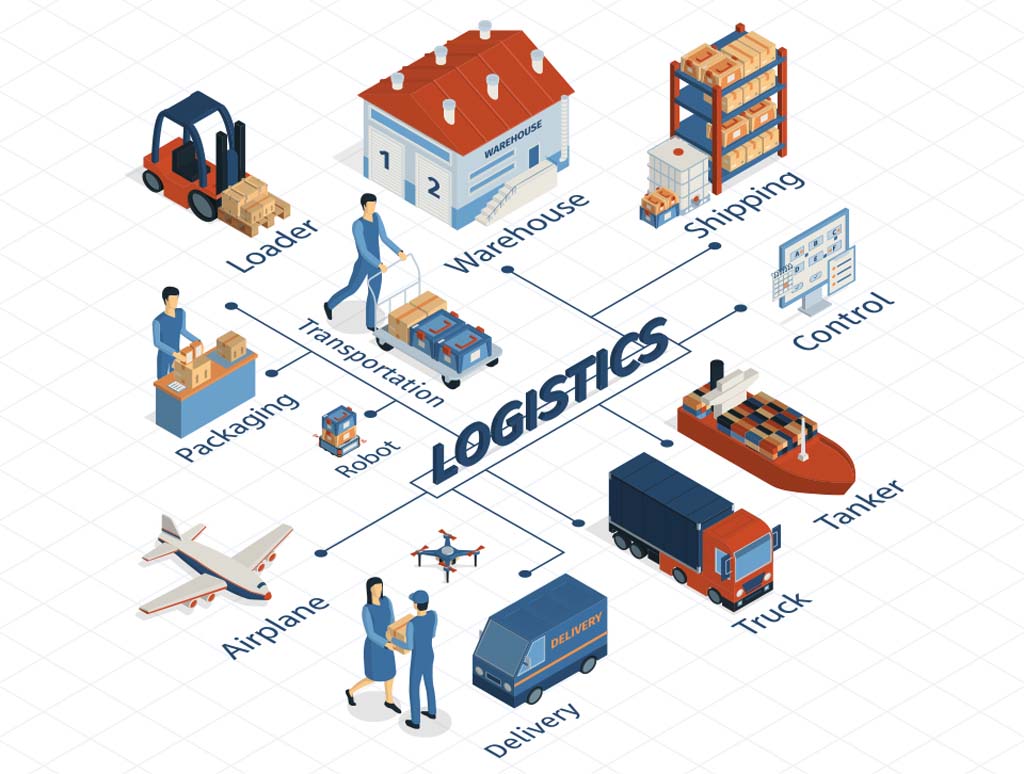
Drone deliveries have been the subject of years of experimentation by significant companies in
the e-commerce and logistics sectors, such as UPS and Amazon. For example, items can be
delivered to clients in less than thirty minutes by drones with Amazon’s Prime Air service.
Drone-based healthcare supply delivery was the primary emphasis of UPS’s Flight Forward
division. It was established in 2019. The increased support for drone technology for e-commerce
appears in these examples.
Advantages of Drone Deliveries:
• Drones can travel higher than barriers and use direct routes, which can greatly speed up
delivery times. It can work well, especially in cities with heavy traffic.
• Drones can reduce delivery costs by eliminating human drivers and vehicle maintenance. It
promotes sustainable operations and allows businesses to pass savings on to consumers.
• Drones offer a more efficient and accessible alternative to traditional delivery trucks in
remote or rural areas. It enables e-commerce platforms to serve a wider customer base.
• Drones powered the electric batteries. It has become popular due to its eco-friendliness and
sustainability in e-commerce and logistics.
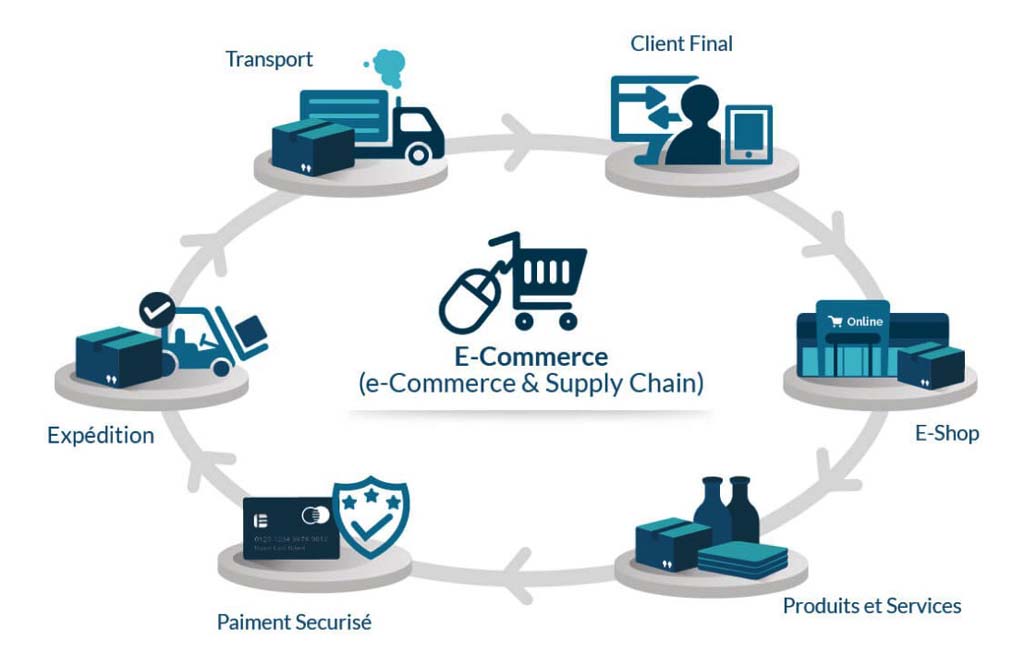
Role of AI in Optimizing E-commerce Logistics:
AI is revolutionizing e-commerce logistics by optimizing supply chains, from warehouse
automation to route planning. It enhances efficiency and customer experience through datadriven decisions.
One of the most significant AI-transforming techniques is e-commerce logistics, particularly in
warehouse automation. The companies like Amazon and Alibaba use AI-powered robots for
faster order processing and inventory management. These robots reduce labor costs and increase
throughput. AI also predicts demand patterns. It ensures products are stocked accordingly the
reducing risk of overstocking or understocking.
AI is revolutionizing delivery planning and execution by analyzing factors like traffic conditions,
weather, and vehicle capacities. UPS uses its ORION system to plan routes for drivers. It saves
millions of miles and gallons of fuel annually while improving delivery times.
Future of E-commerce Logistics:
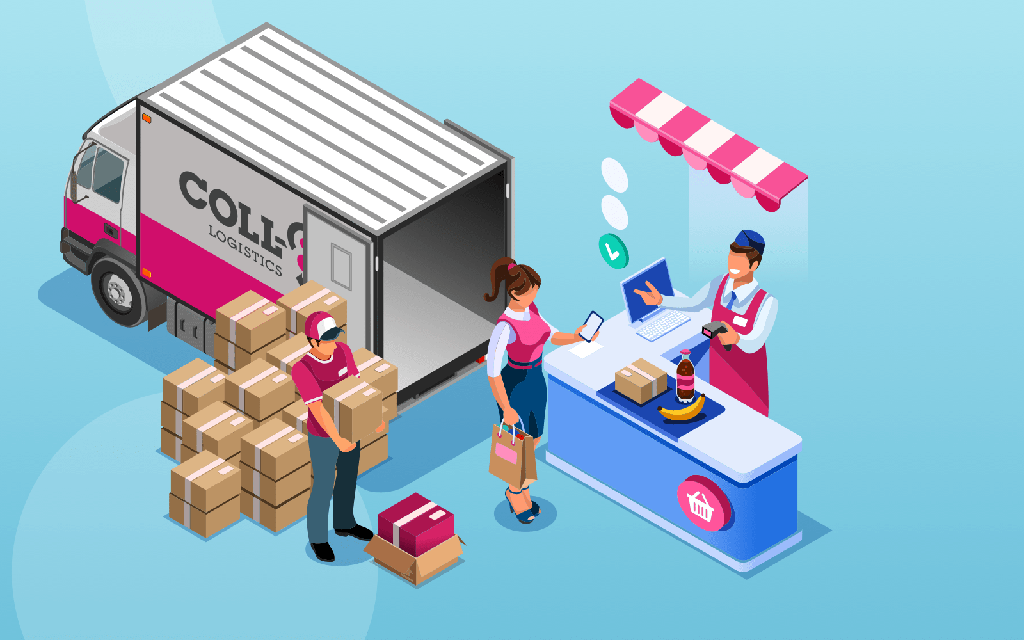
Drones and AI technologies will probably have a bigger impact on e-commerce logistics as they
develop. A number of significant developments that will impact this industry’s future are known:
• Autonomous drone deliveries are expected to become more prevalent as regulatory
frameworks improve. It serves as fast and small-package options in urban and rural areas.
• AI, robotics and drones could revolutionize supply chains. It enables minimal human
involvement in manufacturing sorting, shipping and delivery. It also reduces operational
costs and delivery times.
• AI and drones are expected to reduce the carbon footprint of e-commerce logistics. It also
enhances efficiency and sustainability goals.
• E-commerce platforms are also expected to offer special services such as specific delivery
times and precise tracking updates.


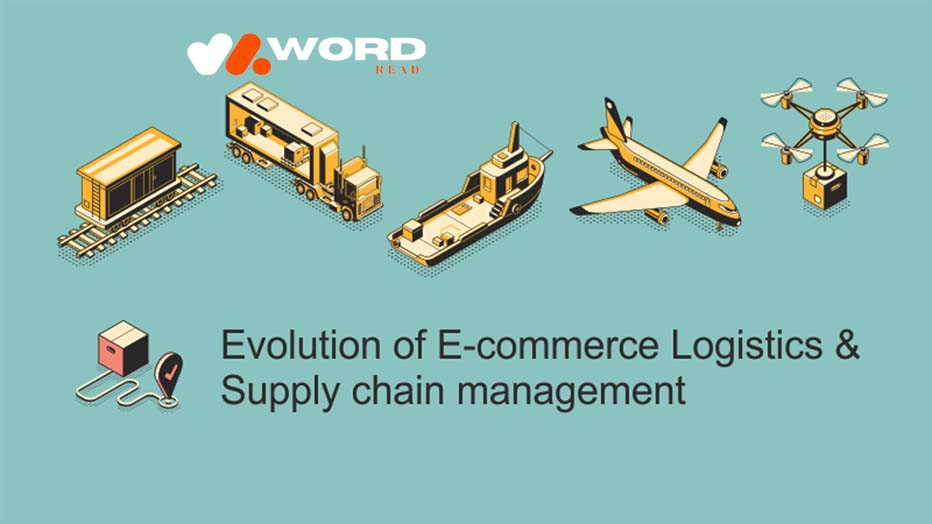
25 Comments
I’m not sure what Area 52 has to do with any of this?
Excellent, what a website it is! This web site presents valuable
facts to us, keep it up.
What’s Happening i’m new to this, I stumbled upon this I’ve found It absolutely helpful and it has helped
me out loads. I am hoping to contribute & assist different customers like its helped me.
Good job.
Howdy, i read your blog occasionally and i own a similar one and i was just
wondering if you get a lot of spam comments? If so how do you
prevent it, any plugin or anything you can suggest?
I get so much lately it’s driving me mad so any support
is very much appreciated.
hey there and thank you for your information – I have definitely picked up something new from right here.
I did however expertise some technical points using this site, since I experienced to reload the web
site many times previous to I could get it to load properly.
I had been wondering if your hosting is OK? Not that I’m complaining, but slow
loading instances times will sometimes affect your placement in google and could damage your high-quality score if ads and marketing with
Adwords. Anyway I’m adding this RSS to my email and can look out for much more of your respective
exciting content. Make sure you update this again soon.
Fabulous, what a weblog it is! This blog provides valuable information to us, keep it
up.
Hey there! I’m at work browsing your blog from
my new iphone 3gs! Just wanted to say I love reading through your blog and look forward to all your posts!
Carry on the great work!
Hello! This is my first visit to your blog! We are a team of volunteers and starting a new initiative in a community in the same niche.
Your blog provided us beneficial information to work on. You have done a
extraordinary job!
I think this is among the most significant info for me. And i’m satisfied studying your article.
However wanna remark on few normal issues, The web site style
is wonderful, the articles is in point of fact nice : D.
Just right activity, cheers
At this time it looks like Movable Type is the preferred blogging platform available right
now. (from what I’ve read) Is that what you are using on your blog?
If you wish for to increase your familiarity only keep visiting this website and be updated with the newest news
update posted here.
Howdy just wanted to give you a quick heads up.
The text in your content seem to be running off the screen in Chrome.
I’m not sure if this is a format issue or something
to do with browser compatibility but I figured I’d post to let you
know. The style and design look great though! Hope you get the issue solved soon. Cheers
Can I simply say what a relief to uncover somebody who genuinely understands what they’re discussing
on the internet. You definitely realize how to bring a problem
to light and make it important. A lot more people must read this and understand this side of your story.
I was surprised that you’re not more popular given that you definitely have the
gift.
Good article! We are linking to this great article on our site.
Keep up the good writing.
Hi there! I’m at work surfing around your blog from my new iphone!
Just wanted to say I love reading your blog and look forward to
all your posts! Keep up the great work!
Nice post. I used to be checking continuously this weblog
and I’m inspired! Extremely useful information specially
the closing part 🙂 I maintain such information a lot.
I was seeking this certain info for a long time.
Thank you and best of luck.
That is really attention-grabbing, You’re an overly professional blogger.
I have joined your rss feed and sit up for searching for
more of your excellent post. Also, I have shared your website in my social networks
Really appreciated. Thanks
Simply desire to say your article is as surprising.
The clarity for your post is simply spectacular and that i could assume you’re an expert on this subject.
Well along with your permission let me to grasp your RSS feed to keep up to date with forthcoming post.
Thank you one million and please carry on the enjoyable work.
Hi there Dear, are you genuinely visiting this web site regularly,
if so after that you will without doubt obtain nice knowledge.
Everything typed made a lot of sense. But, think on this, what if you were to
write a awesome post title? I am not saying your content is
not good., however suppose you added a title that grabbed
folk’s attention? I mean Evolving E-Commerce Logistics: The Role
of Autonomous Drones and AI in Future Deliveries – Wordread is kinda
vanilla. You could glance at Yahoo’s home page and watch
how they create article headlines to grab viewers to open the links.
You might add a related video or a related pic or two to grab people
excited about what you’ve got to say. Just my opinion, it might bring your posts a little livelier.
It’s actually a nice and useful piece of info. I’m satisfied
that you shared this helpful info with us. Please stay us informed like this.
Thank you for sharing.
Excellent goods from you, man. I’ve understand your stuff previous to and you’re just
too fantastic. I really like what you’ve acquired here, certainly like
what you’re stating and the way in which you say it.
You make it entertaining and you still take care of to keep
it sensible. I cant wait to read far more from you.
This is really a tremendous site.
Hi, I do believe this is a great site. I stumbledupon it 😉 I will revisit yet again since i have book marked it.
Money and freedom is the greatest way to change, may you be rich and continue to guide other people.
Wow, fantastic blog layout! How long have you been blogging for?
you made blogging look easy. The overall look of your site is
wonderful, let alone the content!